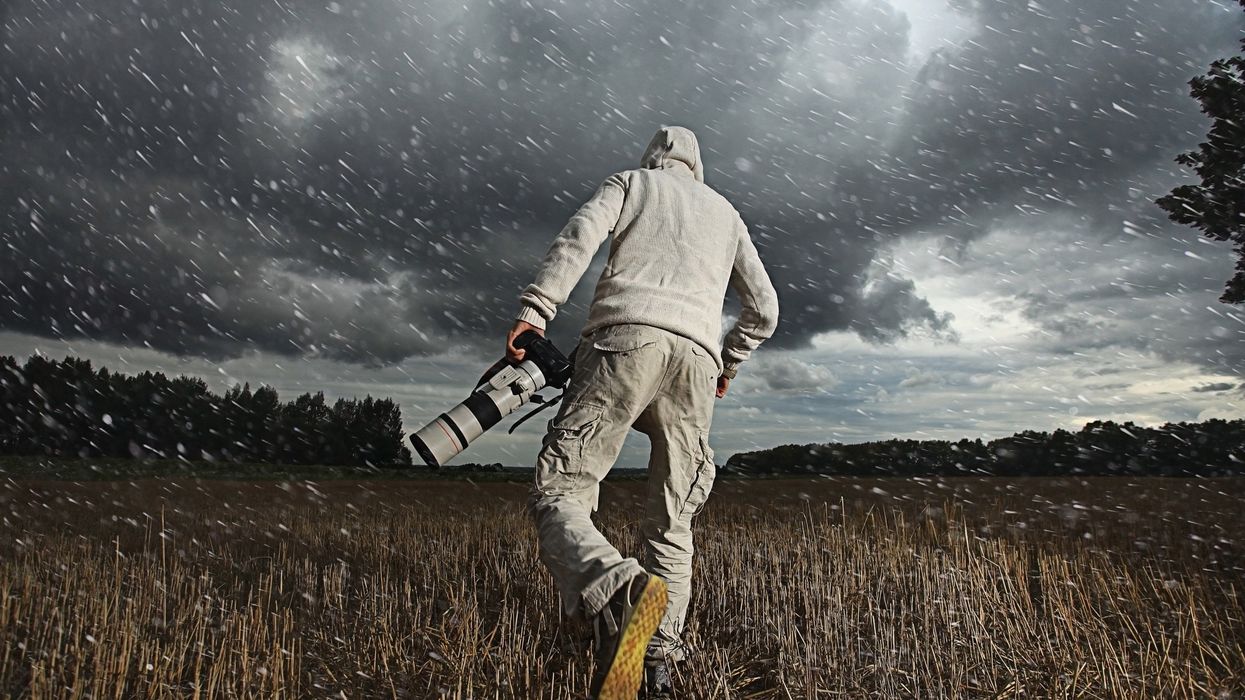Tips to Help You Protect and Operate Your Gear in Hellish Weather Conditions
You spend so much money on your cameras and lenses, so it's important to protect them against damage from the elements.

B&H offers these tips on not only how to safeguard your cameras, lenses, and tripods from harsh weather and travel, but how to use them in extreme conditions:
If you live in an area that gets a lot of snow or rain (soggy Oregon native here), you know all too well that weather is a huge factor when it comes time to plan and schedule your shoots. Cold temperatures can make your camera's performance suffer, causing it to run slower. B&H suggests keeping extra batteries on hand to swap out when the one you're using gets too cold. Also, making sure you have protective covers for snowfall or rainfall is important to keep your gear safe from water damage, as well as everyday wear and tear.
Now, these things might be pretty obvious for most filmmakers (who's going to take their camera out during a deluge and wonder why it's acting funny later?), however those who don't travel very often between extreme hot and cold temperatures may not know much about how condensation can gather on your gear. Knowing how to keep that moisture out using Ziploc bags, as well as how to deal with any moisture that does get into my travel bag has already saved me a huge headache for when I take my camera to the most frigid parts of the Russian rural locality of Oymyakon. (Minus -90°F? Yeah friggin' right, guys.)
How to you protect your gear from harsh weather? Let us know down in the comments!
Source: B&H











